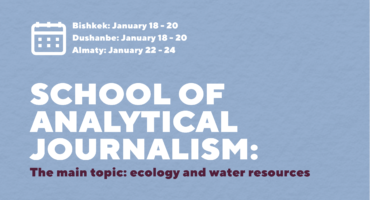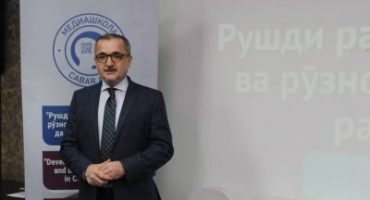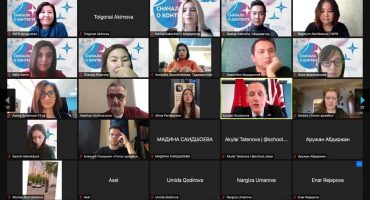On November 10-13, 2021, CABAR.asia Media School held a Content Lab dedicated to social design in the digital space and the role of online communities in promoting projects. The event was created as a collaboration platform for the digital content makers’ community in Central Asia.
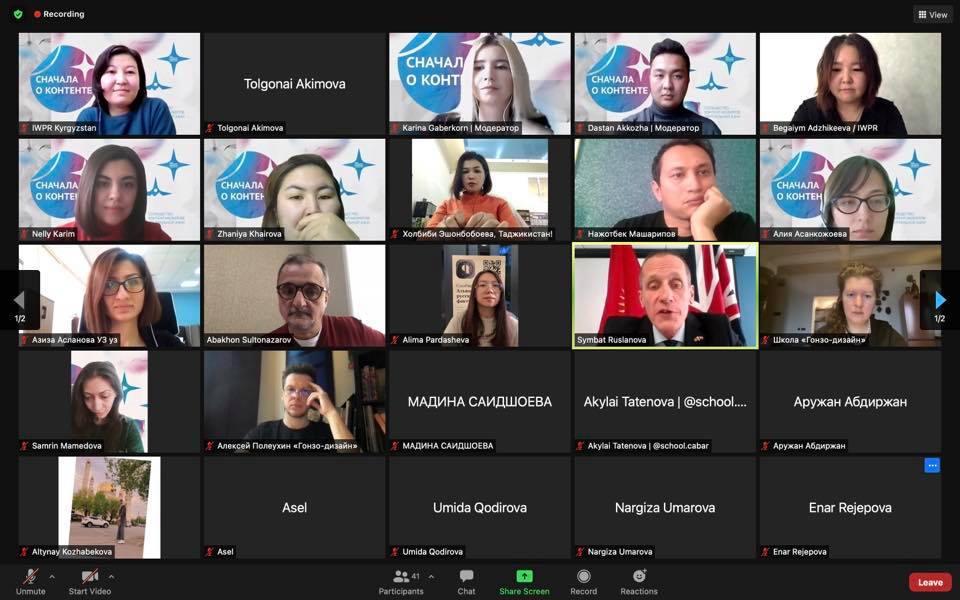
During the four days of the intensive workshop, the participants learned about social design, understood the ecosystem and features of online projects, and discussed communities. During the practical part of the workshop, the participants presented the drafts of their projects, tried to work on the concept of their community, and received valuable comments and feedback from professionals.
The trainers were Ksenia Diodorova and Aleksei Poleukhin, founders and producers of the Gonzo Design studio and school, as well as Alima Pardasheva, community manager at Yandex.Q, curator of the Alliance of Fact Checkers community.
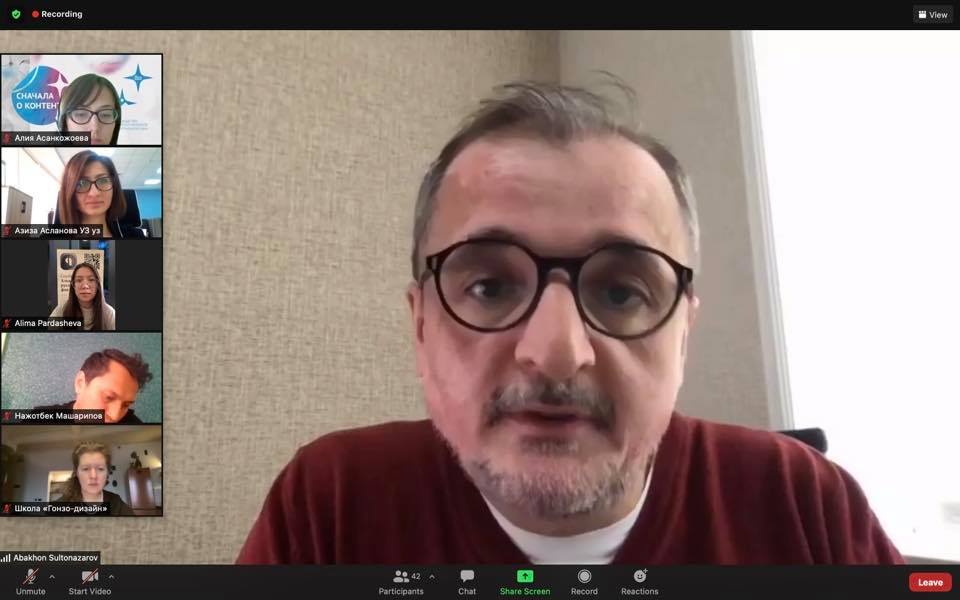
Opening the Lab, IWPR Central Asia Regional Director Abakhon Sultonnazarov noted that CABAR.asia Media School always supported such initiatives and, importantly, invited professionals to deliver training.
“Social media have the power to amplify voices, spread information instantly, and expand cooperation between different groups of people,” emphasized Abakhon Sultonnazarov.
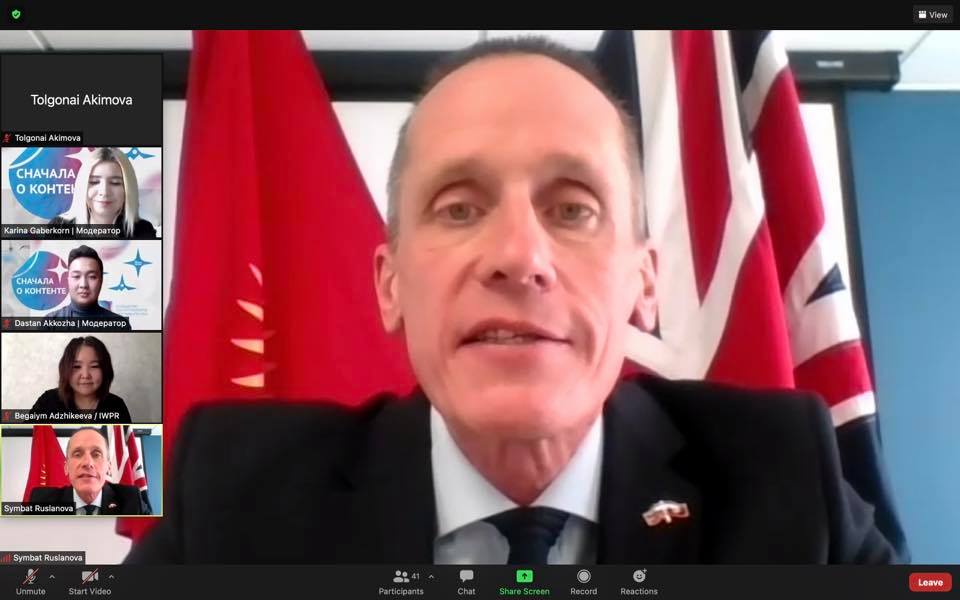
In his welcoming speech, Her Majesty’s Ambassador to Kyrgyzstan Charles Garrett noted the importance of the event for the region and wished success to all participants.
“I want to thank all the participants for their flexibility and desire to develop their skills. Your digital skills are critical to fighting disinformation and fake news,” said Charles Garrett.
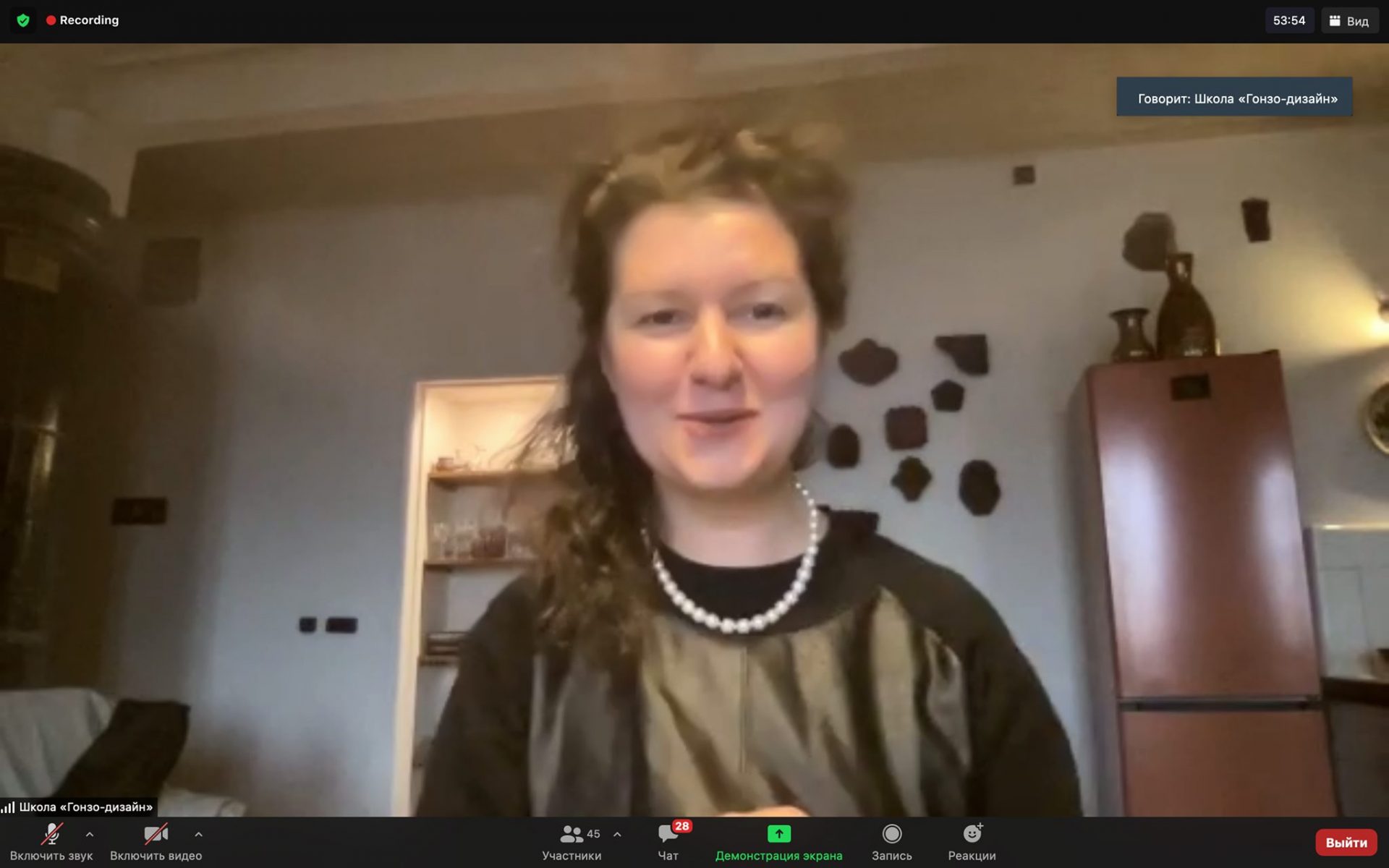
On the first day, Ksenia Diodorova, co-founder of the Gonzo Design studio and school, told the participants in detail about the development of a topic and creation of a concept, elaboration of a content plan, organisation of research and fieldwork for social design. According to her, a person sees only things he/she can relate to. Therefore, when planning a social project, authors should make sure they synchronise their messages with the world where their audience lives.
During the session, the participants briefly presented the topics of their social projects and received feedback from the trainer. Among the topics presented by the participants were domestic violence, women’s rights, domestic tourism, healthcare, and much more.
The second day of the Lab was devoted to fundraising, communications, and project support. Ksenia Diodorova told the participants of the Lab about the need for preparation for the projects, introduced the AIDA model (Attention, Interest, Desire, Action). She recommended participants to use this marketing model even in writing emails and noted:
[quote]At the time of the project release, everything is alien for the audience. Therefore, you should prepare the ground before its release: provide some information so that people feel empathy when the project is released.[/quote]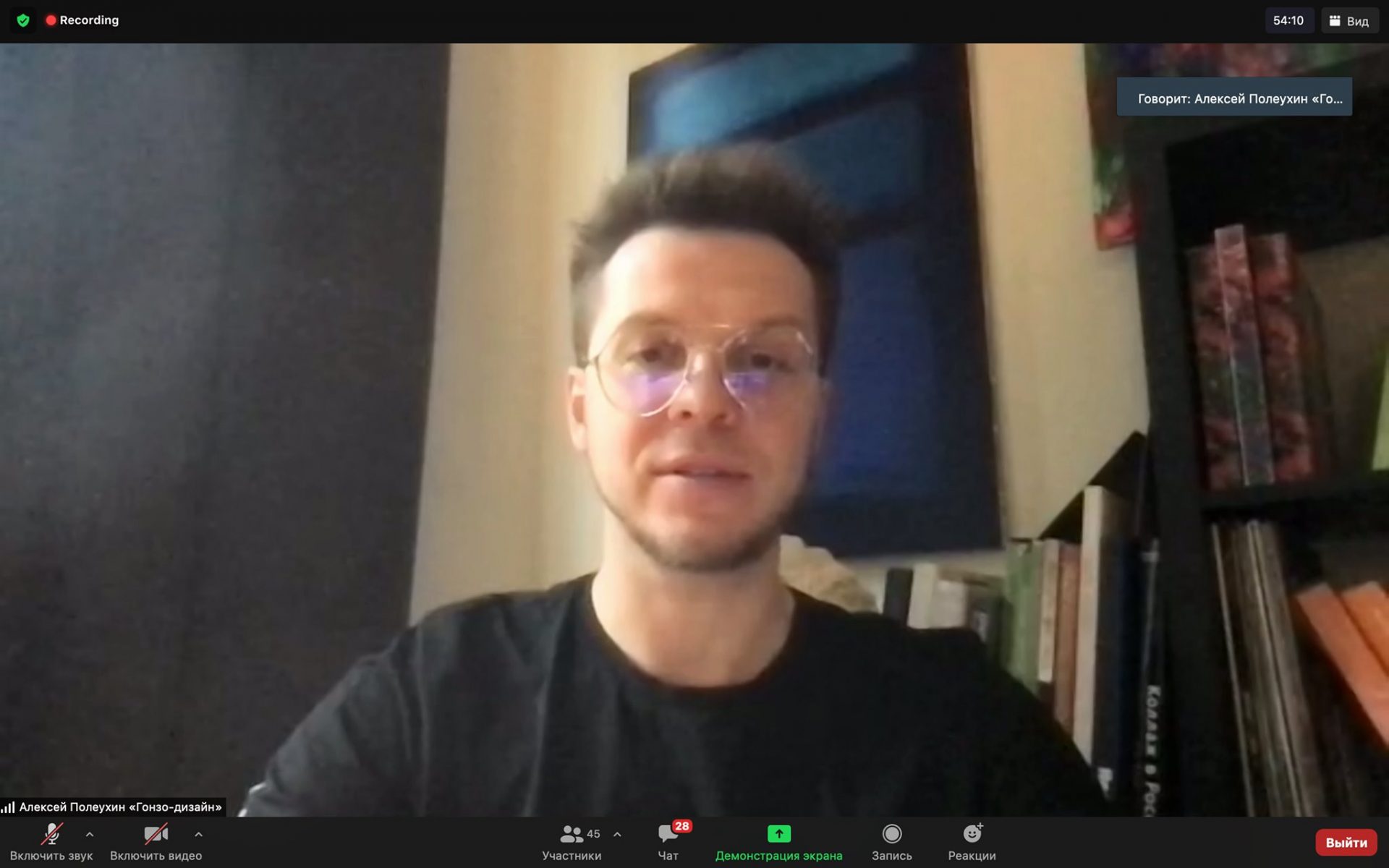
Then, the co-founder of the Gonzo Design studio and school Aleksei Poleukhin spoke to the participants. Together they analysed the nuances of filling out grant applications and working with funding from businesses.
The second day ended with a practical exercise. The participants presented their projects. Among them were the materials on eco- and ethno-tourism, education, social orphanhood, people with disabilities, as well as projects aimed at increasing political and legal literacy, developing scientific potential in the community, preventing cyberbullying on social media, highlighting the problems of labour migrants’ children, and promoting the strong inspiring images of women in the format of fairy tales for children. Each participant who presented the assignment received valuable comments and useful recommendations from Aleksei Poleukhin.
During the theoretical session on the third day, Aleksei Poleukhin and participants analysed the communication strategy, sustainability, and scaling of the project in detail.
According to him, communication with the audience should not look like a monologue of the project’s author. He recommended leaving space for the audience to bring something of their own.
At the end of the day, the participants made the final presentations of their projects taking into account all the comments received earlier. Aleksei Poleukhin recommended most of the participants to conduct preliminary testing and prototyping of projects before their implementation to assess sustainability and future success. Once again, he emphasized it was very important to promote not the project itself, but its content.
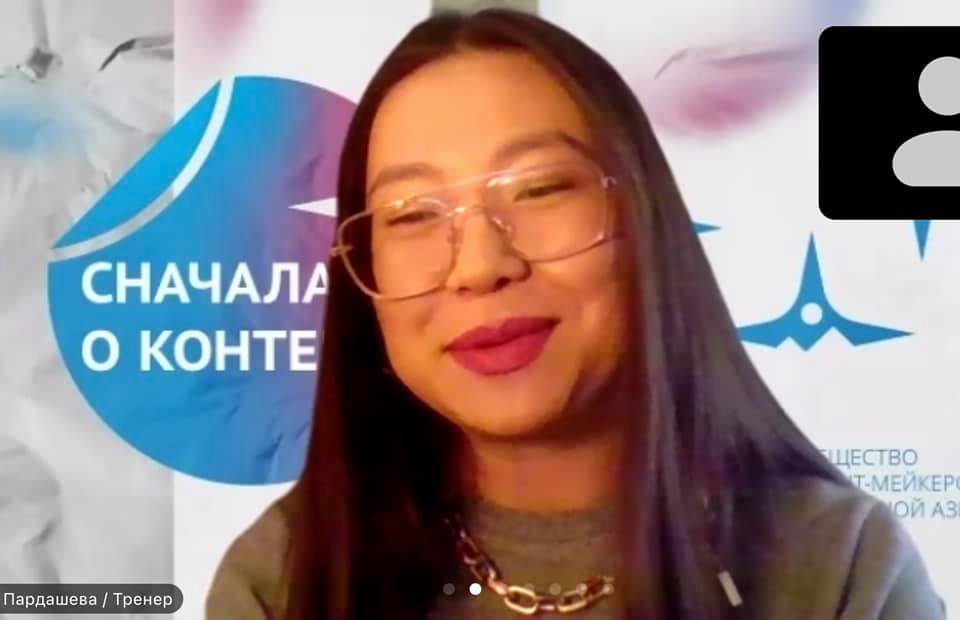
The communities around the projects and their role in social change were discussed on the fourth final day of the Lab. The speaker was Alima Pardasheva, curator of the Alliance of Fact Checkers community.
During the theoretical session, she told participants about her experience in managing the community. She also shared her knowledge about why it is necessary to create communities, what roles of participants exist in it, and what the daily routine of a community manager is.
At the final practical part of the event, the participants presented ideas for the development of the current and the creation of possible future communities around their projects and received feedback from the trainer.
It should be noted that the members of the content makers’ community moderated all days of the Lab: Saule Agatayeva (Kazakhstan), Karina Gaberkorn (Kyrgyzstan), Ellina Kim (Tajikistan), and Samrin Mamedova (Uzbekistan).

At the close of the event, IWPR Central Asia Program Coordinator Jazgul Ibraimova summed up the results of the four-day workshop, thanked all speakers and moderators, congratulated the participants on completing the Online Lab, and awarded them with certificates.
After the course, I finalised and presented a project to prevent hate speech in social media. I use received knowledge to develop my Instagram blog @zhaniyabs.
I would like to mention the professionalism of the invited speakers from Saint Petersburg – Ksenia Diodorova and Aleksei Poleukhin, Gonzo Design studio.
While content makers usually pay great attention to the need to create and develop a content plan, we went even further with Ksenia – we went deeper into the search for new approaches to study the topic and the level of building a dialogue with the audience.
It was not immediately clear how to apply this, since I came to the workshop having a general idea of the project. After applying the 5-question formulas, I shaped the project, removed unnecessary things, and achieved clarity through the goal and approaches.
Zhaniya Khairova, Kazakhstan
Aziza Murzashova, Kyrgyzstan
During the practical part of the workshop, I was able to create a draft of my project, tried to work on the concept of my community, and received valuable advice and feedback from professionals. I would like to thank the organisers, moderators, coaches, and coursemates for an excellent team spirit, new knowledge, networking, and experience.
Shahnaz Komilzoda, Tajikistan
Anastasia Gladilova, Uzbekistan
Watch the video recordings of the Lab sessions here
The event’s landing page
Follow CABAR.asia Media School news on Telegram
This workshop was held as part of the Development of New Media and Digital Journalism in Central Asia project implemented by the Institute for War and Peace Reporting (IWPR) with the financial support of the UK Government. The opinions expressed during project events and/or in project materials do not reflect the official position of the Government of the United Kingdom and IWPR.
If you have found a spelling error, please, notify us by selecting that text and pressing Ctrl+Enter.


